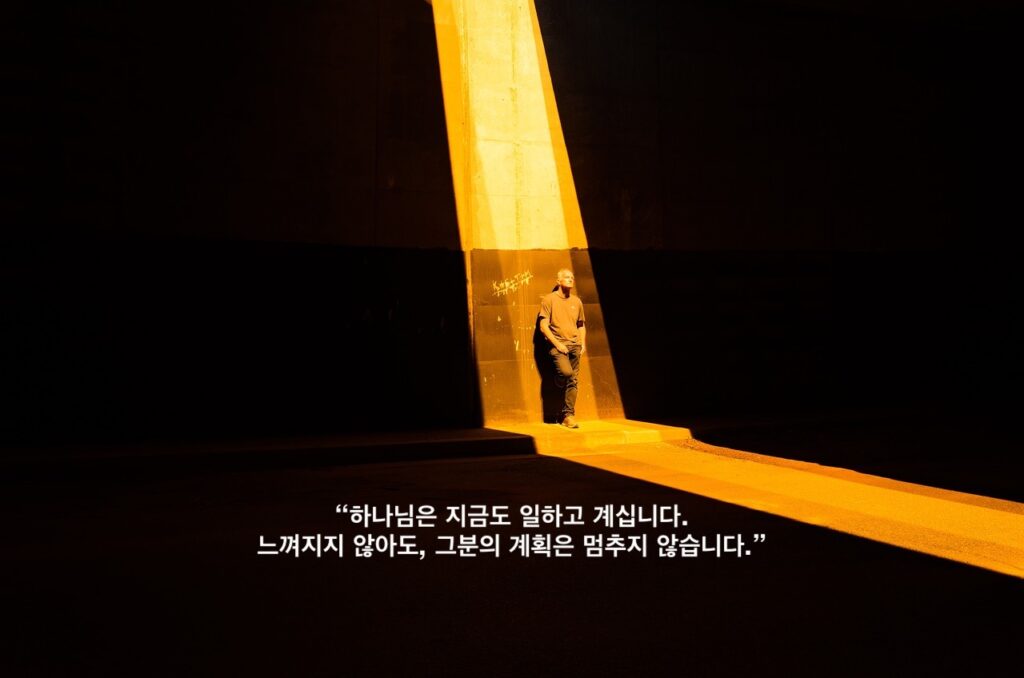Offerings: Faith or Obligation?
At some point, offering became misunderstood. What was once the fruit of faith began to be seen as a reason to criticize the church, not as a confession to God but as a public display of religious pretense.
For a long time, offering was a discipline of faith and a natural act of obedience in a believer’s life. But now, we live in a time where the question, “Why should I give?” feels more natural than the act of giving itself.
Is offering merely a religious duty, or is it evidence of a living faith?
This is not a question about method or amount—it is a deep inner inquiry into who God is to us, and what kind of relationship we have with Him.
Human beings instinctively desire possession. We cling to what we’ve earned, and spend our lives preserving and growing it.
Money is not just a means—it is one of the most powerful symbols of reality we rely on. So the act of giving that money to God is never simple.
Not because God needs it, but because through our offering, the truth of how much we trust Him is revealed.
God desires our hearts. But the heart is never separate from the physical.
If someone says they’ve given their heart, but their hands remain still, that is not love—it’s self-deception.
God does not need our wallets to verify our faith. But if the heart is surrendered, the wallet will always follow.
The early church viewed offering not as command but as joy. Paul wrote in 2 Corinthians, “Each should give what they have decided in their heart.”
This “decided” is not just a human resolve—it is an inner confession born of the Spirit’s prompting and a faith-filled decision.
The widow’s two small coins were not about amount, but essence. God didn’t see what she gave—He saw her entire being.
She didn’t offer a part of what she had; she entrusted her whole life to God.
Offering is faith because it tangibly shows real trust in God.
Faith always reveals itself in obedience—words may sound holy, but giving is more honest than words.
Offering is a mirror of faith.
It reflects our posture, our values, our view of God, and our spiritual maturity.
It’s not that giving much means you have great faith. But those of great faith always give.
Offering is both discipline and revelation.
As we train in it privately, our view of money and God is purified.
Eventually, offering becomes more than giving money—it becomes a declaration that our whole life belongs to God.
To give to God is to be held by Him.
An open hand reveals an open heart. And those whose hearts are open can obey God’s Word without being shaken by circumstance.
Many view offering as obligation—something expected of a believer.
Yes, offering serves the church and community practically. But if it becomes merely a system for maintenance, it violates the principle of the Gospel.
God delights in willing obedience.
He does not desire offerings given under compulsion or social pressure.
An offering without heart is just a ritual—it leaves no depth in our relationship with Him.
God isn’t after a portion of our possessions. He desires our whole being.
Offering is part of our full submission to Him—it is how we participate in His Kingdom.
So why is offering hard for us?
Because our hearts have grown heavy.
When our relationship with God is rooted in love, offering becomes joy.
When it is ruled by law, offering becomes a burden.
Love is never forced—it shows itself.
If offering feels like a duty or a calculation, it’s a sign our hearts have drifted from God.
We feel the weight of giving because we’ve forgotten who He is.
God gave His all. He gave His one and only Son without hesitation.
In light of that, what we offer can never be just a part of us—it must be all of us.
But that “all” is always expressed in parts. Offering is our partial response to His complete gift.
Faith must be concrete. Abstract faith cannot stand in the face of reality.
Worship is not emotion—it is obedience.
Prayer is not a wish—it is a will.
Offering tests whether our faith is real.
Faith always manifests in dependence on God.
If we believe God provides, we can give.
If we believe He holds our future, we can offer—even when it feels like a loss.
Offering is the most direct test of trust between us and God.
To some, it’s a huge step. To others, it’s a natural response.
The difference lies in how much we trust God.
Thus, offering is a spiritual indicator.
It’s rare for someone without faith to give.
It’s equally rare for someone with real faith to withhold.
Offering reveals the reality of God within us—it shows the direction of our hearts and where we stand.
The fact that we *can* give to God is grace.
It’s not about what we give—it’s about what God enables us to give.
Offering is a sign of God’s presence in our lives.
It is our confession that our whole lives are surrendered to His Lordship.
When offering becomes obligation, it is no longer an offering to God.
Giving is not about form—it’s about heart.
We don’t give to earn faith. We give because we have faith.
But over time, offering often becomes habit.
Habits can cultivate godliness, but they can also create hollowness.
In routine giving, we often forget God.
It no longer feels like offering to God—but like dropping money in a box, following tradition.
Offering can become a habit—but unless it flows from grace, it will not last.
Scripture never emphasizes amount in giving.
God valued the widow’s two coins more than the rich man’s abundance.
He didn’t see the amount—He saw the heart.
And that heart flowed from her entire life.
In this, offering is the most honest expression of spirituality.
We can fake prayer. We can memorize praise.
But we cannot fake giving.
Offering reveals whether we truly trust God, whether we truly love His Kingdom.
Offering is never just about money—it is a symbol that our entire life is laid before God.
It is the visible mark of an internal battle to uphold faith.
We are often bound by money.
We feel secure when we have it, begin our day when the account is full, plan ministry when the budget is safe.
Offering breaks that power.
It’s the act of saying: money does not control me—God holds me.
To give is not to lose—it is to lean.
Faith doesn’t ignore reality. It holds onto God *within* reality.
If that faith is real, giving follows.
God never demands excess.
He simply calls us to trust.
And without trust, we cannot give.
And without giving, faith cannot grow.
Fear is the biggest reason we avoid offering.
We fear letting go will leave us lacking.
We fear giving now will create deeper lack later.
But those who know God know this:
God never forsakes those who trust in Him.
God will provide.
That is His nature, His promise, His faithfulness.
But we must wait.
Faith is the courage to wait.
Because we trust God, we let go of security.
And in that surrender, God responds in ways far greater than we gave.
Offering is where faith becomes courage.
At times, the church has misused offerings.
They became burdens, not thanksgivings.
Systems, not surrender.
God does not desire such offerings—coerced, embarrassed, or done in spiritual numbness.
They carry no fragrance to Him.
Instead, they harden hearts and damage trust in the church.
Churches must not judge believers by their offerings.
And believers must not find self-worth in how much they give.
Offering is essentially a response to grace, an answer to the Gospel.
When the cross becomes real in us, we want to give something.
It may be money. It may be time. It may be our lives.
But in the end, it’s all summed up in one word: devotion.
Offering is the simplest expression of devotion.
Not in complex logic, but in simple decision.
Faith is not explained in words—it’s shown in action.
And offering is the most tangible and most uncomfortable action, precisely because money is tied to our lives.
To lay it down is to entrust control of our lives to God.
Offering is not just giving—it is entrusting.
We offer our lives, our futures, our fears and calculations.
This is the core of true faith.
Offering is not what we “have to” do.
It becomes what we “cannot help but” do.
Not a place of resistance, but a place we *long* to go.
When we offer materially, our priorities shift.
What we give first reveals what rules our lives.
Giving to God is saying He comes first—surrendering the throne of our hearts.
The world says, “Gain more.”
God says, “Share more.”
The world says, “Survive by saving.”
God says, “Live by pouring out.”
Offering stands in direct defiance to the world’s economy.
Faith always runs against the current of reality.
And at the end of that resistance, God proves He is alive.
Offering is the walk of expecting that proof.
Now, the church must teach offering again.
We must say why we give—not motivationally, but from the wonder of the Cross.
Not by pressure, but by willingness.
Not by duty, but by love.
God is seeking those who joyfully give themselves.
And that joy only comes when we truly believe He is Lord.
Offering is a response to the Gospel.
Because Jesus Christ gave me everything, I want to give Him what is most precious to me.
That is offering. That is faith.
Maeil Scripture Journal | Faith Column




